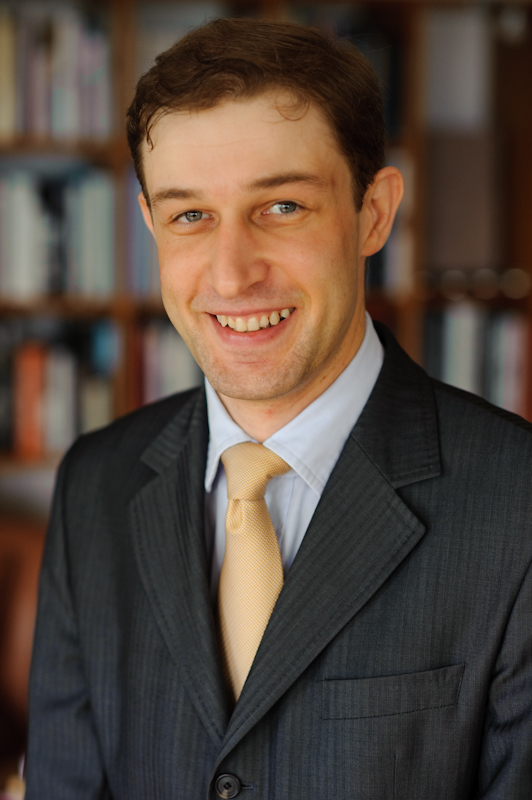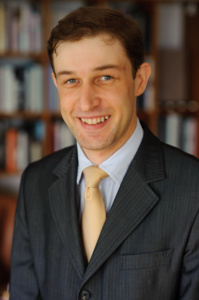i) Public initiatives work only if they are here to coordinate, support and create a critical mass of attention. They should not set priorities, directions or imply any other kind of active involvement, as this is counter-productive. Countless examples of public initiatives (including France, Malaysia, but also the EU) tried to replicate the Silicon Valley by setting strong directions on certain industries. This did not succeed.
ii) Public initiatives work mainly when they provide a clear framework for selecting start-ups, providing them with a clear time-frame of support, and with specific means answering real needs. Assessing these needs is the key success factor to succeed in the project. These needs vary depending on the industries covered, the maturity of companies, the location (country/city) and the competences gathered by the company.
iii) Certain needs can be served by the private sector. The public initiative should not compete with and crowd out the private sector. A key success factor in the Silicon Valley, in London, in Berlin and in Paris has been that more than start-ups, it is an ecosystem of private providers which has been built, with a critical mass of actors helping and nurturing start-ups. The public initiative can filter our the good providers from bad ones, and apply a quality level, as well as negotiate prices for the start-ups.
iv) Private initiatives can provide cheap location, high level equipment, certain mutualised services and backing. Backing can be financial, but should not be in money – preferably as a « checkbook» of services (time of lawyers, accountants, IP specialists, etc.). Money/grants/loans should be a small portion only and used as a « signal» only (otherwise, entrepreneurs come, take the money, and then leave to the US… like in Chile).
v) The partners of the public initiative should at least be: business angels networks, non-profit such as Endeavor who mentor entrepreneurs, VC firms, large firms, banks, but also headhunters, law firms, accountants, outsourced marketing specialists, the stock exchange (if possible to facilitate potential IPOs in a pilot program).
vi) The public initiative should at least fill two gaps: the relationship between labs (private, University, public) and entrepreneurs; and large firms and entrepreneurs. First because it is necessary to identify early innovations (possibly by developing a partnership with business schools to have Masters students work on that on the template developed by Aalto or HEIG-VD), and then identify the key HR needs (notably experienced executives). Second, because a key problem of start-ups is to find their first customers. Large firms are difficult to get access to, and are good beta-testers and first references.
vii) The public initiative should focus as much as possible on internationalization of start-ups. Hence, it has to take the risk of seeing some start-ups leave and reincorporate in the US or elsewhere. However, a key success factor to develop viable companies is to attract stable foreign capital. Incorporating start-ups in Cayman, Delaware or other « neutral» places is part of it (managing the real exchange rate being another problem, until now not solved). This means that OPIC, the Interamerican Bank of Development, and other foreign groups should be contacted, and some « tours» should be organized for selected start-ups to visit key countries and meet local representatives (financial sources, clients, suppliers and help to open branches).
viii) Specific needs might entail offering classes to help entrepreneurs speak fluent English, communicate according to IFRS/International GAAP/US GAAP, outsource some functions abroad as they are cheaper.
ii) Public initiatives work mainly when they provide a clear framework for selecting start-ups, providing them with a clear time-frame of support, and with specific means answering real needs. Assessing these needs is the key success factor to succeed in the project. These needs vary depending on the industries covered, the maturity of companies, the location (country/city) and the competences gathered by the company.
iii) Certain needs can be served by the private sector. The public initiative should not compete with and crowd out the private sector. A key success factor in the Silicon Valley, in London, in Berlin and in Paris has been that more than start-ups, it is an ecosystem of private providers which has been built, with a critical mass of actors helping and nurturing start-ups. The public initiative can filter our the good providers from bad ones, and apply a quality level, as well as negotiate prices for the start-ups.
iv) Private initiatives can provide cheap location, high level equipment, certain mutualised services and backing. Backing can be financial, but should not be in money – preferably as a « checkbook» of services (time of lawyers, accountants, IP specialists, etc.). Money/grants/loans should be a small portion only and used as a « signal» only (otherwise, entrepreneurs come, take the money, and then leave to the US… like in Chile).
v) The partners of the public initiative should at least be: business angels networks, non-profit such as Endeavor who mentor entrepreneurs, VC firms, large firms, banks, but also headhunters, law firms, accountants, outsourced marketing specialists, the stock exchange (if possible to facilitate potential IPOs in a pilot program).
vi) The public initiative should at least fill two gaps: the relationship between labs (private, University, public) and entrepreneurs; and large firms and entrepreneurs. First because it is necessary to identify early innovations (possibly by developing a partnership with business schools to have Masters students work on that on the template developed by Aalto or HEIG-VD), and then identify the key HR needs (notably experienced executives). Second, because a key problem of start-ups is to find their first customers. Large firms are difficult to get access to, and are good beta-testers and first references.
vii) The public initiative should focus as much as possible on internationalization of start-ups. Hence, it has to take the risk of seeing some start-ups leave and reincorporate in the US or elsewhere. However, a key success factor to develop viable companies is to attract stable foreign capital. Incorporating start-ups in Cayman, Delaware or other « neutral» places is part of it (managing the real exchange rate being another problem, until now not solved). This means that OPIC, the Interamerican Bank of Development, and other foreign groups should be contacted, and some « tours» should be organized for selected start-ups to visit key countries and meet local representatives (financial sources, clients, suppliers and help to open branches).
viii) Specific needs might entail offering classes to help entrepreneurs speak fluent English, communicate according to IFRS/International GAAP/US GAAP, outsource some functions abroad as they are cheaper.
Cyril Demaria
(Updated 03/12/2013)
Cyril Demaria invests in, writes about and lectures private equity. He currently manages a finder's fund (Pilot Fish I, vintage year 2009). Prior to that, he co-founded and was Chief Investment Officer of Tiaré Investment Management AG (Zurich, CH). He created a multi-strategy fund of funds focused on environment (Pionat Viable Investments). He was also an investment Associate in a private equity fund of funds (Zurich, CH), and Portfolio Manager responsible for private equity funds investments in an insurance group (Paris, FR). As Head of Corporate Development of a profitable IT outsourcing company (Paris, FR), he managed four acquisitions projects and raised debt to finance them. Cyril started his career in a hybrid venture capital and fund of funds firm (San Francisco, US; Paris, FR).
A French citizen, Cyril holds a BA in Political Sciences from the Institut d'Etudes Politiques (Lyon, FR - class of 1996), Master in Geopolitics applied to Money and Finance (Paris, FR), Master in European Business Law (Paris, FR) and a Master from HEC (Paris, FR - class of 2000, Entrepreneurship). He is a doctoral candidate at University St. Gallen (CH, graduation year 2014).
An Associate Professor at EDHEC (Nice, FR), ESCP-Europe (London, UK), ESCE (Paris, FR), EADA (Barcelona, SP), Fipecafi (Sao Paulo, BR), USP (Sao Paulo, BR) and IFP Business School (Paris, FR), he lectures "Private Equity", "LBO", "Corporate Finance", and "International Finance". He holds training cessions AFIC (Paris, FR), SFAF (Paris, FR) and for other organizations.
www.pefinance.eu/
(Updated 03/12/2013)
Cyril Demaria invests in, writes about and lectures private equity. He currently manages a finder's fund (Pilot Fish I, vintage year 2009). Prior to that, he co-founded and was Chief Investment Officer of Tiaré Investment Management AG (Zurich, CH). He created a multi-strategy fund of funds focused on environment (Pionat Viable Investments). He was also an investment Associate in a private equity fund of funds (Zurich, CH), and Portfolio Manager responsible for private equity funds investments in an insurance group (Paris, FR). As Head of Corporate Development of a profitable IT outsourcing company (Paris, FR), he managed four acquisitions projects and raised debt to finance them. Cyril started his career in a hybrid venture capital and fund of funds firm (San Francisco, US; Paris, FR).
A French citizen, Cyril holds a BA in Political Sciences from the Institut d'Etudes Politiques (Lyon, FR - class of 1996), Master in Geopolitics applied to Money and Finance (Paris, FR), Master in European Business Law (Paris, FR) and a Master from HEC (Paris, FR - class of 2000, Entrepreneurship). He is a doctoral candidate at University St. Gallen (CH, graduation year 2014).
An Associate Professor at EDHEC (Nice, FR), ESCP-Europe (London, UK), ESCE (Paris, FR), EADA (Barcelona, SP), Fipecafi (Sao Paulo, BR), USP (Sao Paulo, BR) and IFP Business School (Paris, FR), he lectures "Private Equity", "LBO", "Corporate Finance", and "International Finance". He holds training cessions AFIC (Paris, FR), SFAF (Paris, FR) and for other organizations.
www.pefinance.eu/
Lisez gratuitement chaque jour (5j/7) le quotidien Finyear.
Recevez chaque matin par mail la newsletter Finyear, une sélection quotidienne des meilleures infos et expertises de la finance d’entreprise.
Lien direct pour vous abonner : www.finyear.com/newsletter
Lisez gratuitement chaque mois :
- le magazine digital Finyear sur www.finyear.com/magazine
- la lettre digitale "Le Directeur Financier" sur www.finyear.com/ledirecteurfinancier
- la lettre digitale "Le Trésorier" sur www.finyear.com/letresorier
- la lettre digitale "Le Credit Manager" sur www.finyear.com/lecreditmanager
- la lettre digitale "Le Capital Investisseur" sur www.finyear.com/lecapitalinvestisseur
Recevez chaque matin par mail la newsletter Finyear, une sélection quotidienne des meilleures infos et expertises de la finance d’entreprise.
Lien direct pour vous abonner : www.finyear.com/newsletter
Lisez gratuitement chaque mois :
- le magazine digital Finyear sur www.finyear.com/magazine
- la lettre digitale "Le Directeur Financier" sur www.finyear.com/ledirecteurfinancier
- la lettre digitale "Le Trésorier" sur www.finyear.com/letresorier
- la lettre digitale "Le Credit Manager" sur www.finyear.com/lecreditmanager
- la lettre digitale "Le Capital Investisseur" sur www.finyear.com/lecapitalinvestisseur
Autres articles
-
Pomelo annonce une Série A à 35 millions de dollars menée par Vy Capital
-
Hong Kong : bientôt des premiers ETF Bitcoin ?
-
TMS Network (TMSN) Powers Up As Cryptocurrency Domain Appears Unstoppable. What Does This Mean For Dogecoin (DOGE) and Solana (SOL)?
-
The Growing Popularity of Crypto Payments: Could TMS Network (TMSN), Alchemy Pay (ACH), and Ripple (XRP) Lead The Way Despite The Whales?
-
DigiFT DEX Raises $10.5M in Pre-Series A Funding Led by Shanda Group
















